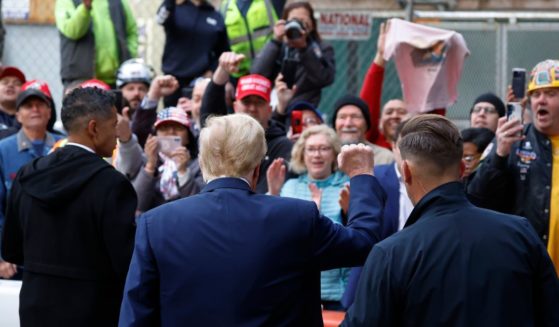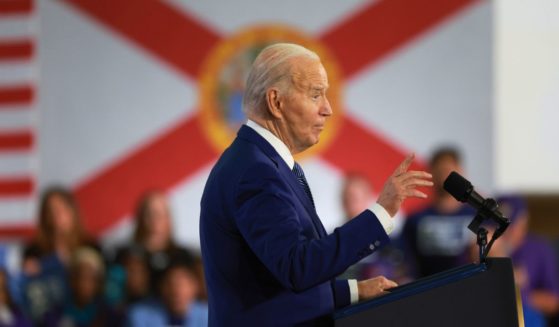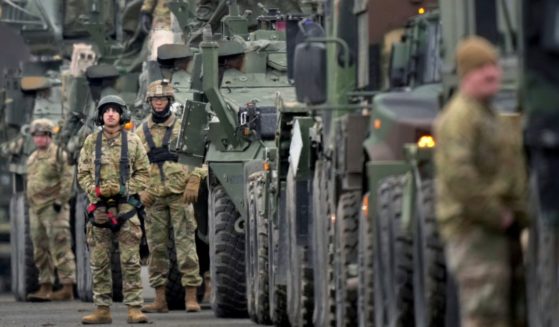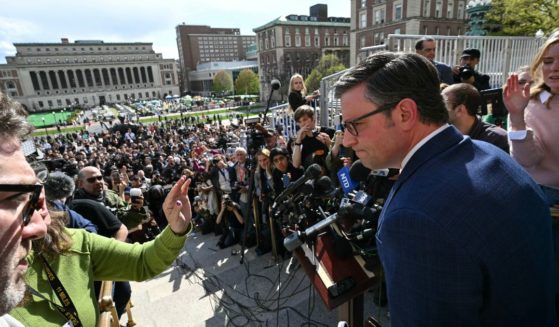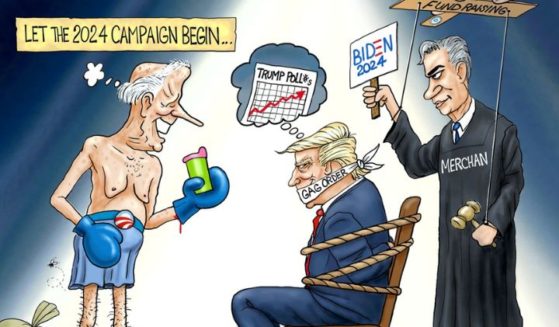Biden Administration Confirms Plans to Send COVID Vaccines to Other Countries
The Biden administration is working on a plan to send doses of the AstraZeneca COVID-19 vaccine to Mexico and Canada, White House press secretary Jen Psaki said Thursday.
This comes despite the fact that only about 11.7 percent of the U.S. population was fully vaccinated as of Thursday, according to the Johns Hopkins Coronavirus Resource Center.
However, vaccinations are progressing even slower elsewhere in North America. Canada was at 1.7 percent and Mexico at 0.5 percent.
The AstraZeneca vaccine has been approved for use in both countries, as it has for much of Europe, but not in the U.S., where clinical trials are taking place, according to CNN.
“I can confirm that we have 7 million releasable doses available of AstraZeneca. … 2.5 million of those, we are working to finalize plans to lend those to Mexico and 1.5 million to Canada,” Psaki said during a briefing at the White House.
The Trump administration acted last May to secure 300 million doses of the AstraZeneca vaccine. However, it has been slower to be approved for U.S. use than other vaccines. Americans are currently receiving two-dose vaccines from Pfizer and Moderna, and a single-dose shot from Johnson & Johnson.
The company estimates that it will have about 50 million doses available by the end of April that are reserved for U.S. use. Those doses are the ones on the table to be shared with Canada and Mexico.
“I’d say we’ve made good progress, but the details, figures, provisions, won’t be known until Friday,” Mexican Foreign Minister Marcelo Ebrard said Tuesday. “We requested as many [AstraZeneca doses] as possible.”
CNN quoted a senior administration official as saying that the deal might be framed as an exchange, with the U.S. sharing what it has now while Canada and Mexico pledge to share any excess vaccine they have with the U.S. at some later date.
AstraZeneca is also encouraging the vaccine stockpiled in the U.S. to be used in Canada and Mexico.
Use of the vaccine had been put on hold by many European countries over concerns that it caused blood clots.
On Thursday, the European Medicines Agency said those fears were overblown, according to The Associated Press.
“Our scientific position is that this vaccine is a safe and effective option to protect citizens against COVID-19,” EMA head Emer Cooke said.
She added: “If it were me, I would be vaccinated tomorrow.”
However, Cooke said the agency “cannot rule out definitively a link” between the vaccine and rare types of blood clots.
The U.S. is partnering with a global coronavirus vaccine initiative called COVAX to help other nations have access to COVID-19 vaccines.
“We are giving $4 billion to COVAX,” Dr. Anthony Fauci, director of the National Institute of Allergy and Infectious Diseases, told lawmakers this week, according to CNN.
“But we also know once we get our own country vaccinated, since we have suffered worse than virtually any country besides Brazil — we are both way up there with over 530,000 deaths — then we will make any surplus vaccine available to the countries who have not the resources to be able to make it themselves,” he said.
President Joe Biden has made a similar comment.
“If we have a surplus, we’re going to share it with the rest of the world,” Biden said last week, according to The New York Times. “We’re going to start off making sure Americans are taken care of first.”
Secretary of State Antony Blinken summed up the administration’s view on vaccinations, telling the BBC last month, “Unless and until everyone in the world is vaccinated, then no one is really fully safe.”
Did you know that The Western Journal now publishes some content in Spanish as well as English, for international audiences? Click here to read this article on The Western Journal en Español!
Truth and Accuracy
We are committed to truth and accuracy in all of our journalism. Read our editorial standards.

